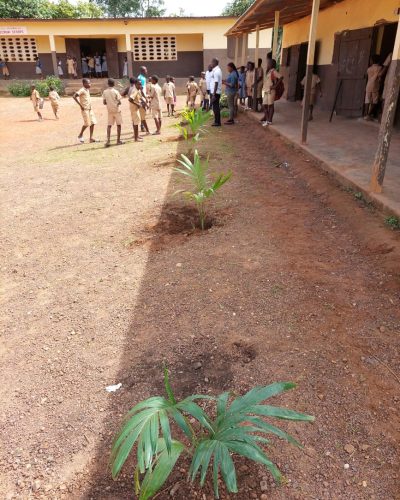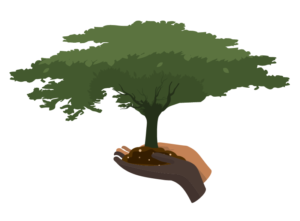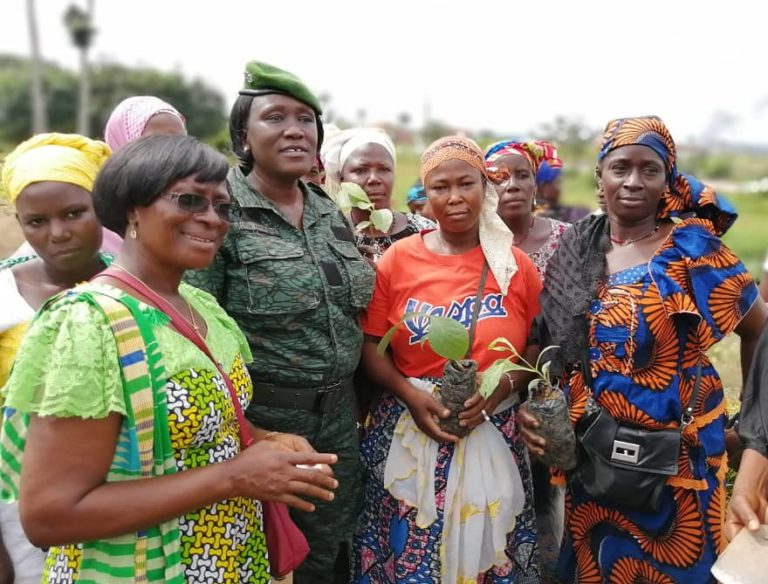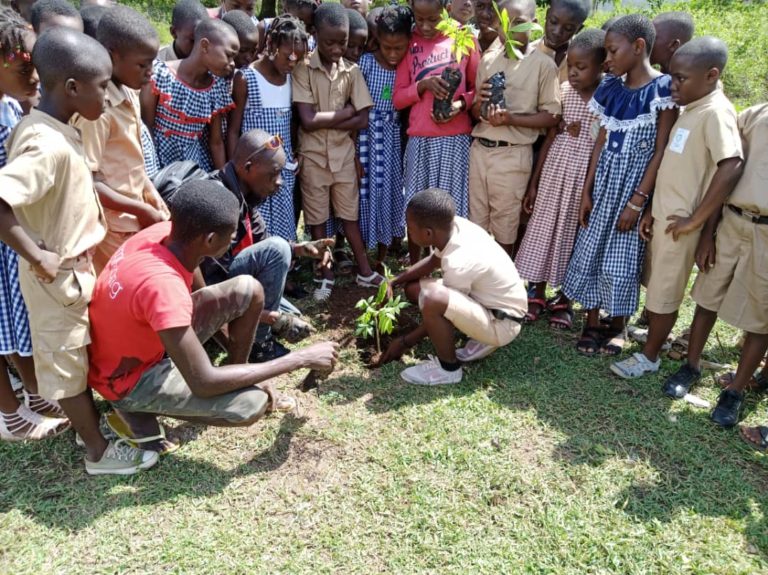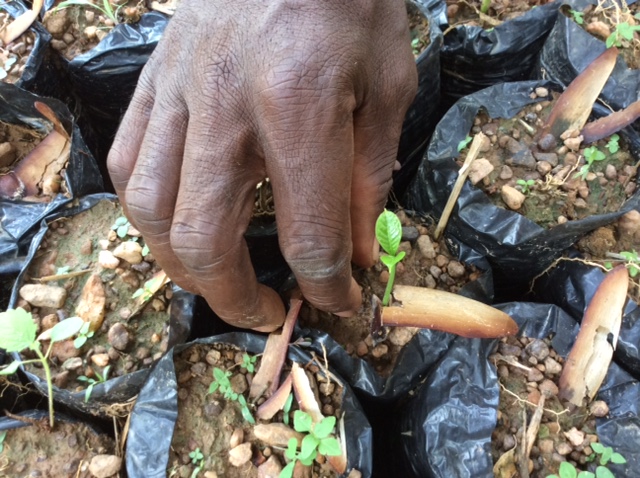REFORESTATION, AGROFORESTRY, LANDSCAPE RESTORATION
PROTECTING THE ENVIRONMENT
FarmStrong Foundation has developed short-, medium- and long-term reforestation, forest restoration, agroforestry, and shade tree planting programs in its area of operation. It has established an increasing number of indigenous forest tree nurseries with the communities through the StrongWoods initiative.
Trees to be used as shade trees in agricultural production systems but also indigenous trees for restoration of degraded forest land as well as more specifically in a publicly managed and protected forest.
The planting of shade trees on farms is a way to protect cocoa trees against the negative long-term impact of too much direct high intensity sunlight and to improve soil health and humidity, protect biodiversity and watershed protection.
It is also a strategy to support the quality of life of the farmer’s households as an income diversification and it will help to improve the awareness of the population about the value of forest in their sensitive ecosystems. These programs also raise awareness about climate change risk mitigation and specific agricultural practices.
A tree growing program was set up to take more concrete, visible and effective action in the communities and on the farms. Trees are being produced for off-farm planting to restore the lost forest cover and increase biomass in general. This goes hand in hand with specific cocoa farming practices, so the impact remains positive.
A geolocation system has been introduced through the innovative W3W (What3Words) gps-code system, which allows us to locate the off and on-farm trees planted and facilitates to monitor their growth. With advanced satellite-based land-use change assessment technologies, enhanced by Artificial (AI) algorithms, we evaluate the impact on canopy cover, biomass development, soil humidity and soil temperature to remediate further pressure of climate change.
Restoration of forest
Thanks to the support of the Swiss Federal Government, the UN Environment Program, our chocolate donors and other donors, our Green Nawa Initiative is enabling the restoration of forest areas (classified and unclassified) as well as the introduction of the agroforestry concept in cocoa plantations on a larger scale. The consortium focuses on the Nawa region in an innovative integrated landscape model approach.
Within this framework, the following activities were developed
- Introduction of agroforestry systems;
- Restoration of classified and unclassified forests;
- The creation of vegetation barriers / green corridors;
- Transforming villages and towns into green communities;
- Supporting green entrepreneurs and creating green jobs;
- Creating biodiversity enclosures.
To achieve our goal, tree nurseries of various species have been established and developed in our areas of operation. These nurseries have been set up with the help of some women from the communities and farmers (both young and adult).
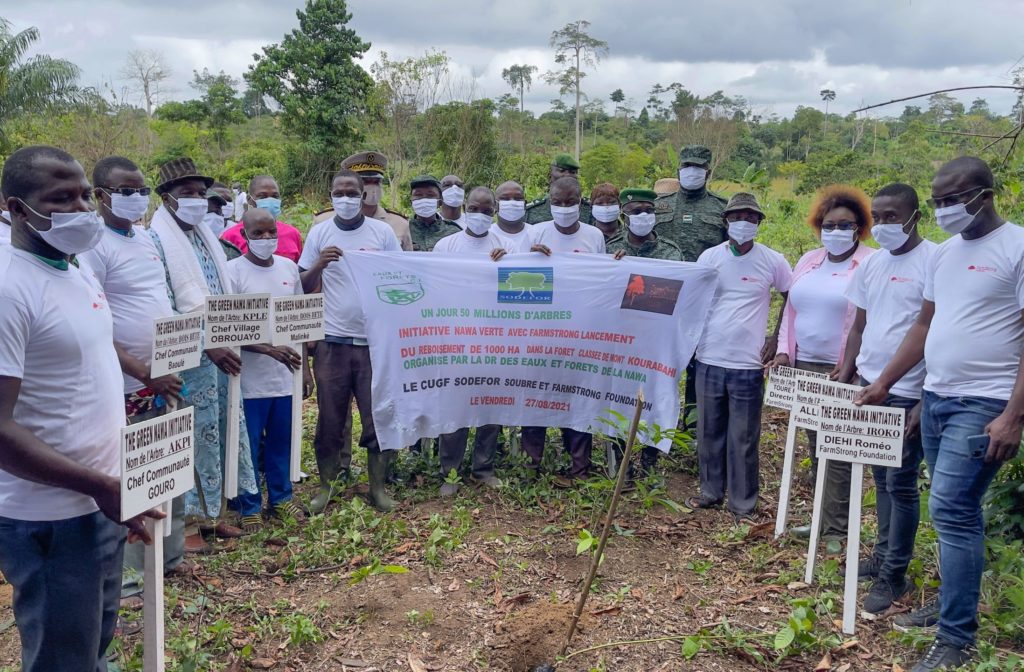
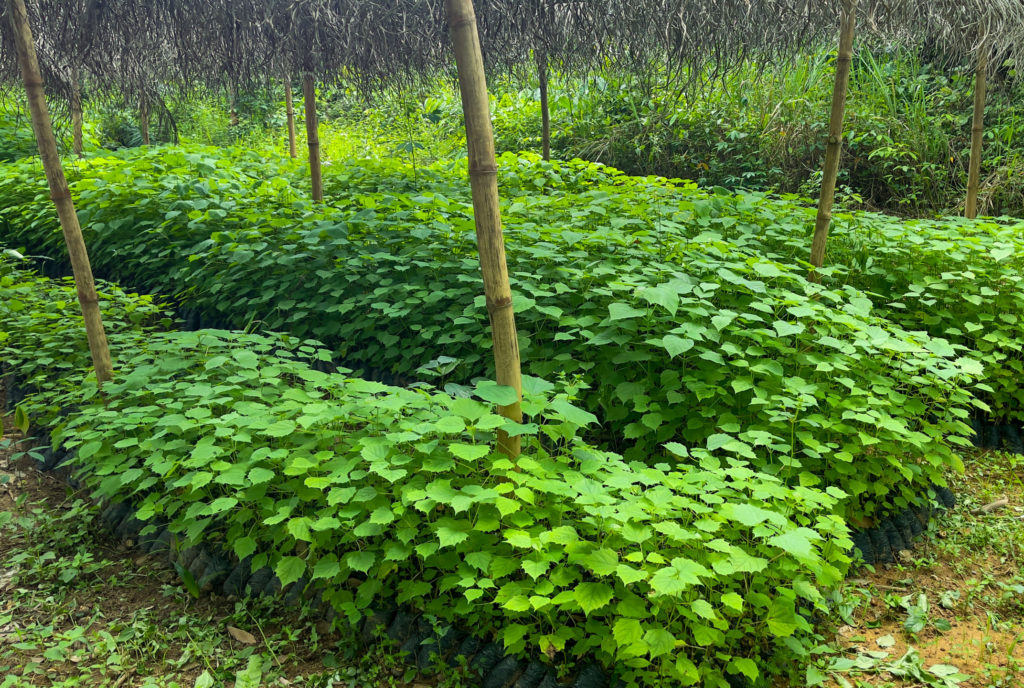
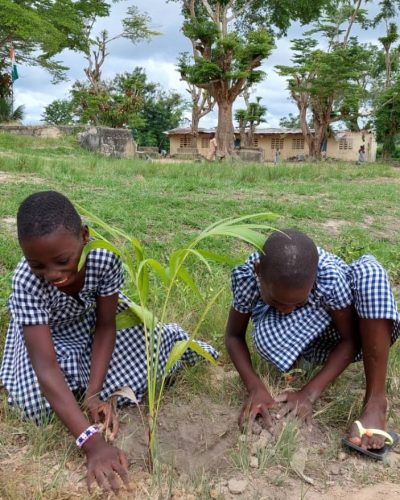
Schools involved
Environmental education is provided directly in the schools of our programs in order to raise awareness of environmental climate issues among the youngest students, and as part of this, trees are planted in the schoolyards with the participation of students and teachers. The aim is to create more pleasant outdoor spaces but also in the near future to have more pleasant classrooms and more conducive to learning for students, while contributing to the increase of biomass in the Nawa region.
